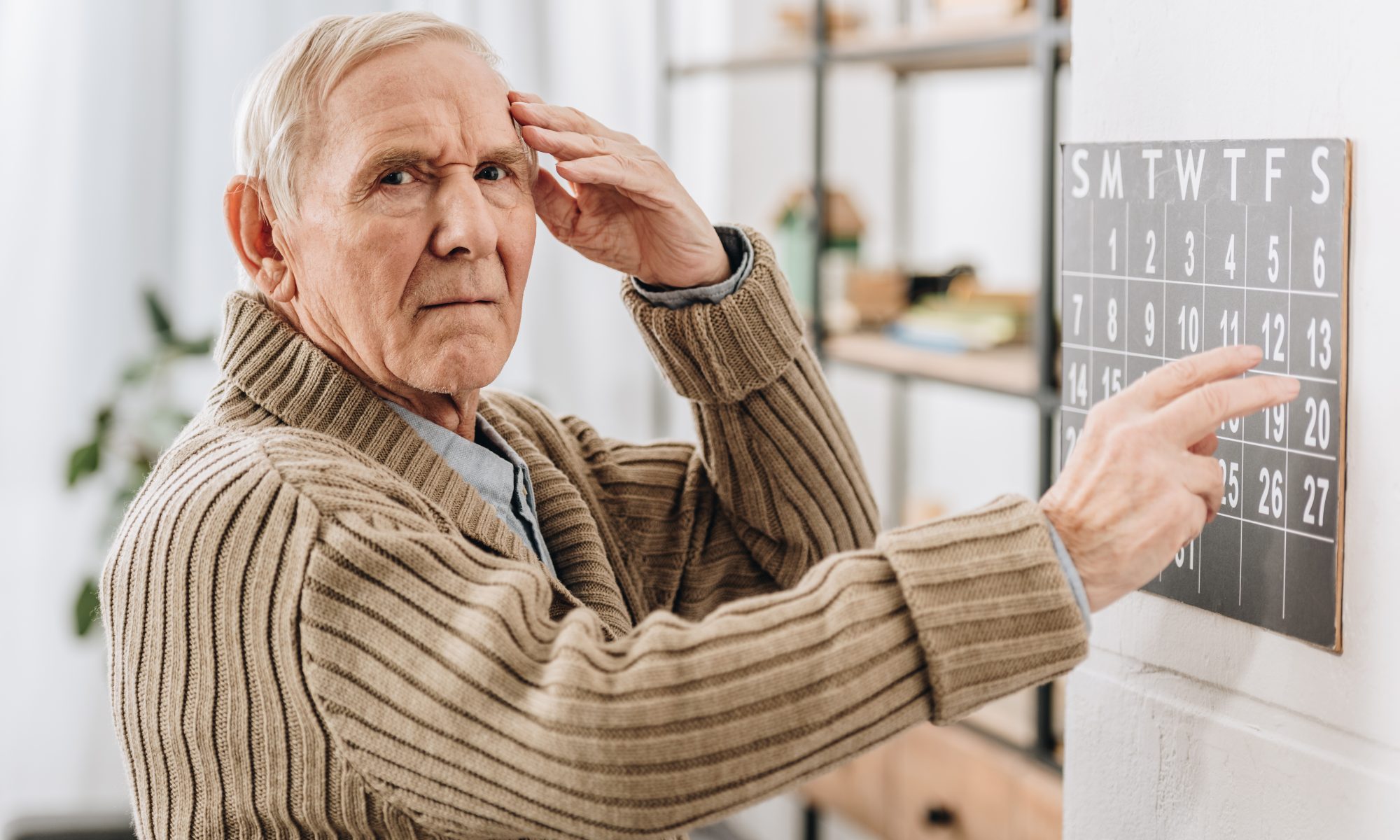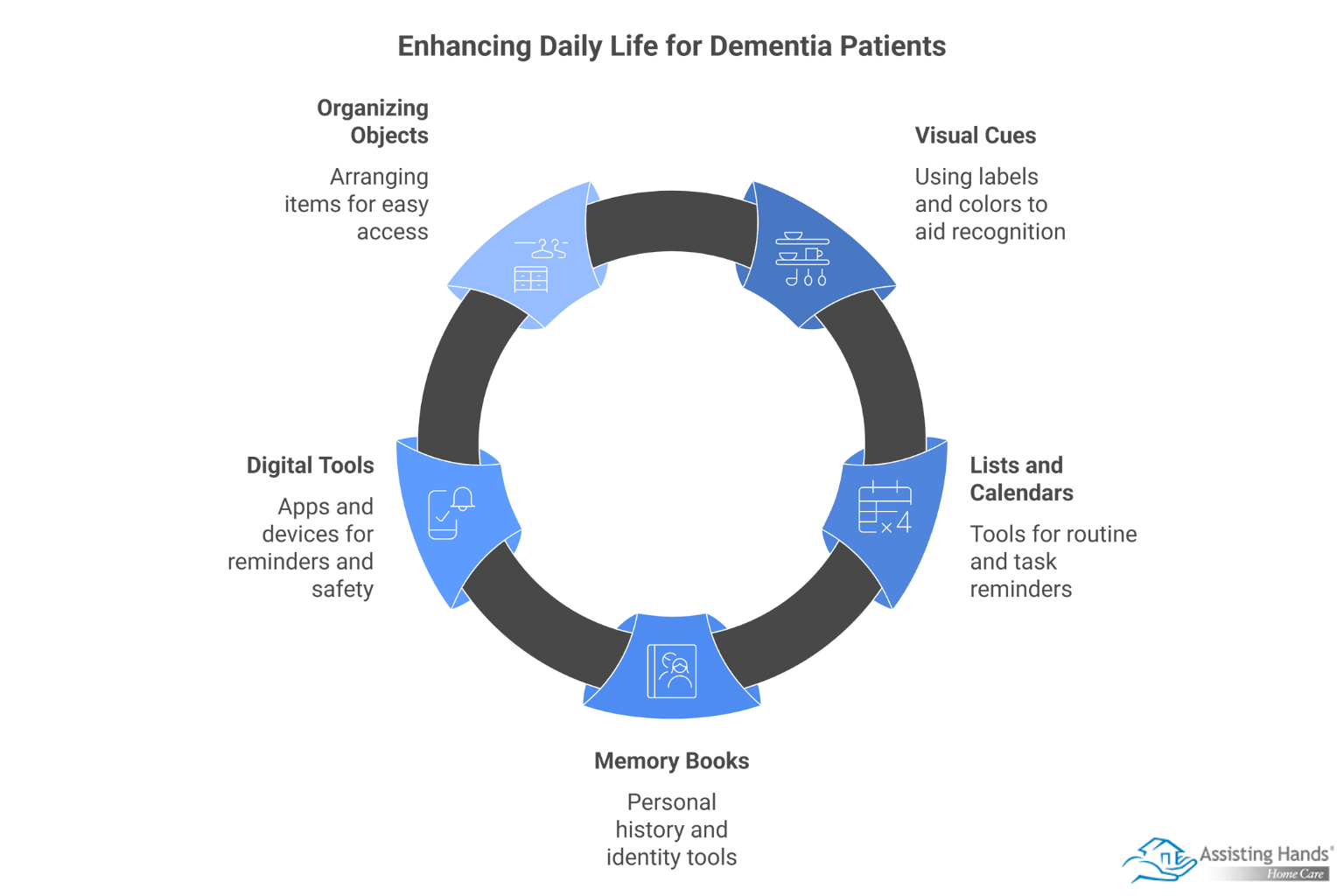
Table of Content
Memory loss is one of the most challenging symptoms for individuals living with dementia and their caregivers. Creating effective memory aids and tools can enhance their daily lives, maintain independence, and offer reassurance. These tools are designed to simplify routines, reduce confusion, and provide support for seniors navigating their day-to-day activities.
Visual Cues Around the Home
Visual cues can be extremely helpful in reminding dementia patients about what to do or where items are located. Labeling drawers, cupboards, and household items with clear pictures and large text descriptions can reduce frustration and confusion. For example:
- Add labels like “Plates” or “Glasses” to kitchen cabinets.
- Use photographs on bedroom doors to identify spaces.
- Place signs with arrows or instructions in high-traffic areas, such as “Bathroom this way →.”
Additionally, using color-coded labels or objects can make it easier for your senior loved one to identify items quickly. For instance, a brightly colored keyring or red tape on light switches can help your loved one locate these items more easily.
There are a variety of age-related health conditions that can make it more challenging for seniors to live independently. However, many of the challenges they face can be easier to address if their families opt for professional home care service. You can rely on expertly trained caregivers to keep your loved one safe and comfortable while aging in place.

Lists and Calendars for Day-to-Day Planning
Maintaining a routine is crucial for dementia patients. Tools like simple calendars and to-do lists act as reminders for daily tasks, appointments, and events. Important features to consider:
- Use large-print calendars with clear boxes for each day.
- Create a daily schedule that repeats regularly (e.g., “Breakfast at 8 a.m.,” “Afternoon walk at 3 p.m.,” etc.).
- Place whiteboards or chalkboards in visible spots with the day’s activities written in order.
Even digital solutions, such as speaking clocks or apps with alarms that remind users about medications, meals, or appointments, can be tailored to suit individual needs.
Create Memory Books or Life Story Tools
Memory books or life story tools serve as more than just reminders. They also provide a sense of identity and personal history that can comfort those with dementia. Here’s how you can create one:
- Include photos, names, and descriptions of close family members, friends, and pets.
- Document your loved one’s favorite memories, hobbies, or significant life events with short captions.
- Add practical information such as your loved one’s address, phone number, and emergency contacts.
Memory books can also be helpful conversation starters for caregivers and family members, sparking joy and connection when reminiscing together.
Digital and Wearable Tools
Technology offers unique ways to support dementia patients in their daily lives. Many apps and devices are specifically designed to address memory issues:
- Reminder apps – Automate reminders for important activities like hydration, meals, and medication.
- GPS tracker – Wearable devices like bracelets or watches equipped with GPS tracking can support seniors prone to wandering, helping caregivers locate them if needed.
- Personalized voice alarms – Devices allow seniors to record voice reminders, creating familiarity and reassurance when prompting an activity.
Introducing these tools gradually ensures they’re easy to adapt to and don’t overwhelm your loved one.
Caring for seniors with dementia can be challenging for family caregivers. Luckily, there is dementia care Miami Beach families can rely on. Professional dementia caregivers help seniors with dementia stay safe and comfortable at home by preventing wandering, providing cognitive stimulation, and assisting with household chores.
Organizing Familiar Objects for Easy Access
Creating an accessible environment promotes comfort and reduces cognitive stress. Arrange familiar, frequently used items in visible and consistent spots. Examples include:
- Keeping the TV remote control and keys in designated trays
- Laying out clothing in a logical order (e.g., socks next to shoes)
- Using transparent containers for items like snacks or medications for easy identification
Consistency is key. By keeping essential items in the same place every day, you reduce the likelihood of disorientation or frustration.
These kinds of aids and tools can enhance safety and quality of life for seniors with dementia, and so can having a trained caregiver close by. Seniors can face a variety of challenges as they age, many of which can be mitigated with the help of professional in-home caregivers who provide high-quality homecare. Miami Beach families trust Assisting Hands Home Care to help their elderly loved ones age in place safely and comfortably. If your loved one needs help with the challenges of aging, call one of our compassionate Care Managers today.
